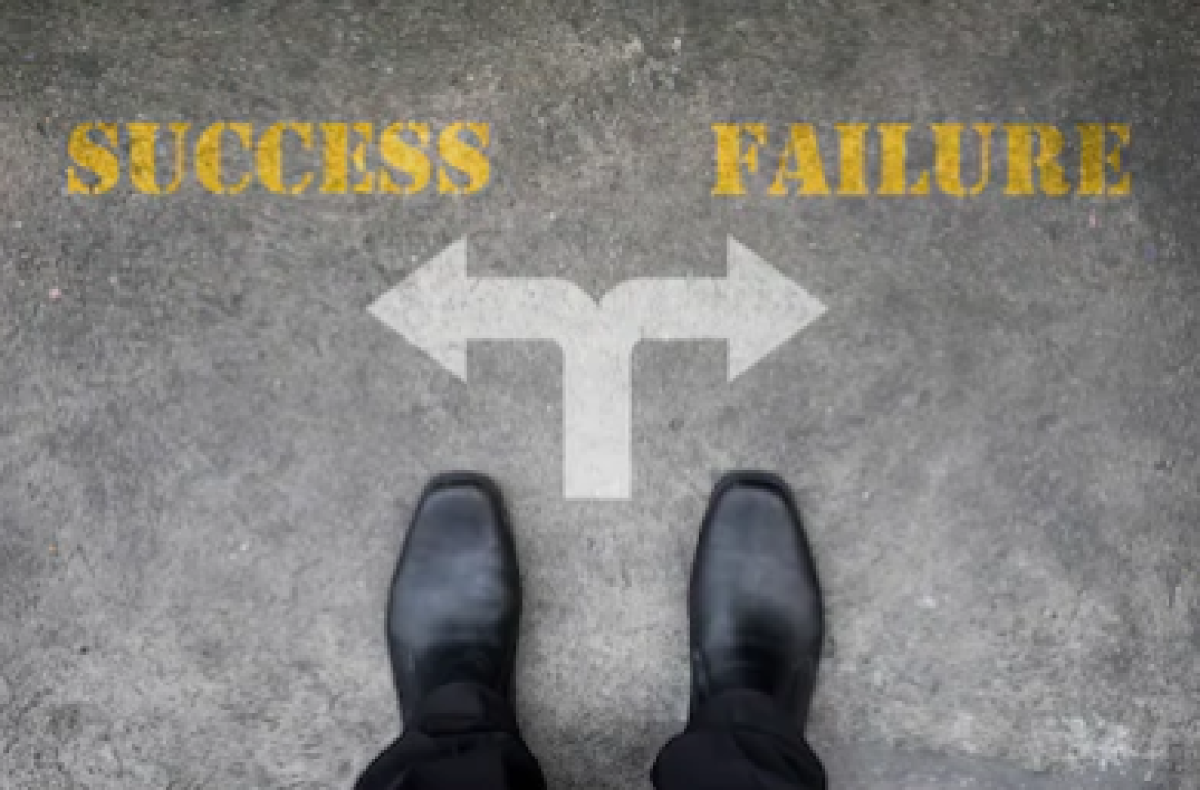The Stress of Negative Thinking

Negative thinking is not relegated to the realm of thoughts. It is an activity that, unchecked, can result in very real damage to your health and well being. This Hub takes a look at some of the many effects of negative thinking. Medical research has found that there are health benefits to being optimistic, which involves engaging in positive thinking. In fact, many physicians are now viewing having a positive mindset as an important element in effectively managing stress and anxiety.
If you’ve viewed my profile, you might know I often enjoy taking a whimsical look at serious topics. You might also know I enjoy writing about the amazing power of positive thinking and positive self-talk, as well as about the equally powerful and emotionally draining effects of negative thinking and negative self-talk.
In this Hub, I’m looking at some of the negative and stressful effects of holding on to the weight of negative thoughts. I'm also looking at how clinging to past failures can keep you from enjoying the present as it deters you from looking forward, with hope, to a brighter future. Throughout my discussion, I will also look at the stressful effects of negative self-talk, and at how changing self-talk from negative to positive can help anyone eliminate stress, improve their life, and increase chances for improved health and greater overall happiness.

Stress and Negative Thinking
If you truly want to fail at something, then a good way to set your mind up for it is to keep remembering the stress and negative feelings you went through as a result of past failures. Why? Because remembering the feeling of being hurt is the best way to keep you enveloped in stress and discouragement; to keep you from trying in the future. And, if you don’t try, then you fail automatically, for lack of trying.
That is why failure is not the opposite of success. Not trying is the opposite of success. Failing at something can actually provide information you need to succeed because it can give you a foundation for growth and development. It can help you create a blueprint for future success. That means dwelling on negative thoughts that keep you from trying is the real enemy of success. And because it is, you can cause yourself to suffer anxiety by allowing the stress of your fears and worries to overwhelm you.
Some of the harmful medical/health effects of negative thinking include:
- Creation of stress, the number one cause of many major health problems
- Depression, which is often brought on by feelings of inadequacy, fear of failure, and anxiety that often accompanies low self-esteem
- Living a wearisome, uninteresting lifestyle which often precipitates or accompanies emotional imbalance and mental anguish
- Negative behavior, thereby leading to negative outcomes (self-fulling prophecies of failure)
- Seeking out of other "negative-minded" people, which only compounds negative thinking and problems associated with the perpetuation of it

Stress and Positive Thinking
I know that it is not possible to always be happy, or even to always think positive thoughts. In fact, I believe it can be stressful to think you have to be happy all the time, and to try to be happy all the time. It is like a breath of fresh air, sometime, and can feel like a weight has been lifted from your life when you give yourself permission to not have to be happy all the time. Thinking positively, instead of negatively, doesn't mean you have to be happy at all times. It simply means you know how to look at undesirable or bad things that happen, or that might happen, in a way that is more positive, productive, and helpful to you.
It is important to understand that sometimes, no matter how much you want to achieve a goal, and no matter how hard you work toward achieving it, that you will fail in your attempt. That is just a fact of life, and the best thing about accepting this truth is that even when you fail at something, you can learn from your efforts. You can even learn to view failure to reach a goal as a prelude to success. Why? Because if you keep trying to achieve a goal, you are more likely to find success through your trying, rather than by not trying.
Does that mean you’ll always find success if you keep trying to achieve a particular goal? Of course not, but if you stop trying, it’s even more likely that you won’t achieve your goal. The worst thing about not trying is that by giving up on your goal, you could be programming your mind with thoughts that could keep you from attempting to achieve future goals as well.
Some of the medical/health benefits of positive thinking include:
- Longer life expectancy
- Lower levels of emotional distress
- Lower rates of depression related to stress and anxiety
- Enhanced immune system response, including stronger resistance to the common cold
- Improved psychological/mental, as well as improved physical well-being
- Improved ability to handle stress that comes with inevitable hardships and challenges
- Lower risk of death related to cardiovascular disease

The Five Monkeys Experiment
Remembering and reliving the stress of past failures, along with paying heed to the negative influence of others, is a well-used formula for the perpetuation of failure (defined as stopping yourself from trying). And it's not something that is resigned to the family of mankind. Did you know it also works in the animal kingdom as well? Have you ever heard the story about the five monkeys?
Someone told me this story a long time ago, and I never forgot it. If you have ever found yourself not attempting to do something out of a fear of failure, then you are going to love this story.
In a large cage, someone hung a banana on a string and put stairs under it. Then they put five monkeys into the cage. Since monkeys love bananas, pretty soon one of the monkeys decided to go to the stairs to try to climb toward the banana. The eager little monkey was sure he was going to be successful in getting the banana. After all, there was nothing standing between him and the banana except a set of stairs.
As soon as the monkey put his foot on the stairs, a spray of very cold water doused him and it doused all the other monkeys in the cage too. The first monkey failed in his attempt to retrieve the banana.
After a while, that delicious banana started to look good again, and another monkey decided to make an attempt to go and get it. As soon as his eager little foot hit the bottom step, very cold water was again doused on him and all of the monkeys.This kept going on for several days.

Then someone turned off the cold water.
Later, a new monkey was put into the cage. When the new monkey saw the banana, he decided to climb the stairs, to go and get it. As soon as he raised his foot to step on the bottom step, the other monkeys started screeching, wailing and attacking to the point where the brave new monkey lost his courage. Remember, the cold water was already off, and it was not used this time. It took a while, but the monkeys calmed down when the new monkey finally stepped away from the stairs.
Then, one of the original monkeys was removed from the cage and was replaced with another new monkey. Of course, the new monkey saw the banana and wanted to climb the stairs to get it. As he did, to his horror, all the other monkeys attacked him when he headed toward the stairs. After another attempt and another attack, he learned that if he tried to climb the stairs, he would be beaten.

Next, another of the original five monkeys was removed and was subsequently replaced with a new one. The newest monkey then tried to go to the stairs, but was attacked by the others. The previous new monkey fervently joined in with the other attacking monkeys.
Next, the third original monkey was replaced with a new one. The newest monkey, once again, made it to the stairs and was also attacked by all of the others. Remember that two of the four monkeys that attacked had never been doused with cold water, and had no idea why they were attacked for trying to climb the stairs, or why they were now attacking the newest monkey for trying.
Eventually the fourth and fifth original monkeys were also replaced, and all the monkeys that were originally sprayed with cold water had been removed from the cage. Still, not one of the five replacement monkeys ever tried to approach the stairs.
Do you know why? The answer that tellers of this story usually give at this point is, “Because that is the way it has always been done around here.” But another possible answer is “because they have all been programmed to fail.” None of the monkeys will ever get the banana, because even though there was no physical obstacle between them and the banana, there is an obstacle that exists in each monkey’s mind. And it is those mental obstacles, not any actual physical barrier, that is keeping them from enjoying the banana.
Five new monkeys that were never doused with cold water were trained to not only to accept failure, but to teach other new, never-doused monkeys to accept it as well.

Now think of your mind as a large cage, and all your hopes and dreams for your life, like the banana, are hanging on a string with stairs under them. Your thoughts, like the five monkeys, are put inside the cage (your mind). As soon as a positive thought tries to reach toward your hopes and dreams, a spray of very cold water in the form of negative self-talk douses it and all the other positive thoughts in the cage.
Make no mistake: It’s true that remembering and revisiting past failures is the best way to keep you failing in the future. If your thoughts are effective in keeping you from even attempting to reach for and to try to reach out and grab your hopes and dreams, then you won't make any progress at all toward achieving anything, other than failure.
You get the point. And while it may not be a perfect analogy, it serves the purpose of demonstrating how even when there are no real obstacles to keep you from working to realize your hopes and dreams, that if you don’t learn how to replace negative thoughts and negative self-talk with positive thoughts and positive self-talk, you run the risk of allowing negative thoughts and negative self-talk to flourish, and to stop you from trying. When this happens, there is no need for any other obstacle to get in your way, because failure is the only option available when you don't even try.
Only positive self-talk can encourage you to transport your thoughts outside of your mind, so that they can become stress-reducing, reality changing activities.

Negative thoughts usually produce negative effects. In the field of medicine, there is something called the "nocebo effect." The concept behind it is that negative expectations or negative influences, on the part of patients, can lead to negative health outcomes.
Working to understand more about the nocebo effect is helping doctors and medical professionals who want to improve how they relate to their patients. Many are finding that the context of how they deliver information to patients might be more important than the content of that information. They're finding that even when the news they have to deliver is not-so-good, if they deliver it in a positive manner, patients are more likely to have positive expectations and more positive results during and after treatment.
Beyond the medical arena, it is widely believed that people who are more positive in their general outlook tend to be healthier and to live longer.
I believe it is healthy to have realistic expectations, and to understand that things won't always work out in your favor, no matter what. You won’t always achieve every goal you set for yourself in life. But, I also believe it is the having of hope, the belief in positive outcomes, and having and working toward achieving goals that helps make life more satisfying, and more enjoyable.
No matter what you are facing in life, I believe the journey you are on is just as important as the final destination. That means that when you decide to have a positive approach to life, if you are determined to believe in and to expect the best, to try to achieve goals and to never give up on yourself, I believe you gain courage and confidence as a result of your beliefs and actions. I believe you prove to yourself your inner strength, and that doing this makes you a winner, someone better prepared to meet any challenge that life might send your way.

According to the Mayo Clinic staff, you can actually reduce stress by eliminating negative self-talk. To help you get started doing this, here are some helpful pointers:
- Be kind and loving toward yourself, just as you are to others. Be happy in your own skin, but always find a way to challenge yourself to improve where you can.
- Accept that you are, and always will be, a work-in-progress. Know that while you are not and will never be perfect, that having perfection as your ultimate goal is what makes life more purposeful, more fun, and more satisfying.
- Do what you can to help other people. Don't spend all of your life's energy on you. By focusing on someone else and doing something good for others, you will not only expand your circle of acquaintances and friends, you will open new doors for opportunity and learning.
- Reject the idea of failure. Learn to view your attempts at accomplishing anything as "dressed rehearsal." That way, you will understand and embrace the notion that every attempt, each and every try, counts.
- If you find negative thoughts coming to mind as a prediction of your capabilities or as the only possible outcome before you even attempt to achieve something, learn to replace the negative with hope and positive expectations. Learn to see yourself, in your mind's eye, succeeding in what you set out to accomplish.
- Even when you don't succeed in achieving one or more of your ultimate goals, learn to view your attempt as a successful try. Trying to achieve is positive, and it is the opposite of failure.
References: MayoClinic.com, Health-mind-body.com, Psychologytoday.com (article titled "Depression Doing the Thinking)
© 2012 Sallie B Middlebrook PhD








